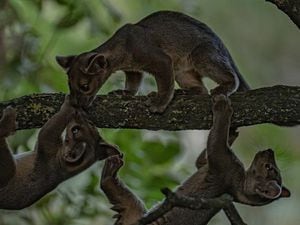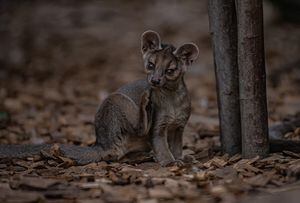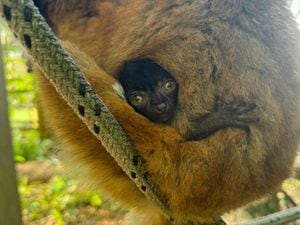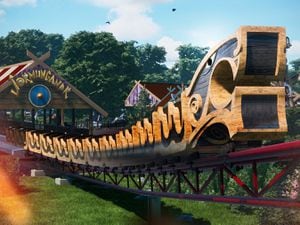A first for Chester Zoo as it celebrates birth of fossa triplets
Chester Zoo has welcomed rare fossa triplets into the world for the first time in its 91-year history.

A distant relative of the mongoose, the fossa is a slender, cat-like mammal only found in the forests of Madagascar.
The 12-week-old pups, who were born to parents Shala and Isalo, are beginning to venture outside after remaining tucked away for their first few weeks of life.
Conservationists released heart-warming footage of the pups exploring their habitat, and say they will soon be choosing names for the male and two females.
Zookeeper Rachael Boatwright, said: “The fossa is one of the world’s most elusive carnivores and little is currently known about how they live in the wild."

"The birth of Shala’s triplets is therefore a huge cause for celebration. Not only are they the first pups to ever be born at our zoo, but their arrival into the endangered species breeding programme will allow us to discover more about their behaviours, from tiny pups all the way to adults.
“This is Shala’s first litter, and while it’s still early days, her three pups are doing great and are now full of confidence as they learn to climb trees and explore together, all under the watchful eye of mum, of course.”
Mike Jordan, director of animals and plants, added: “These three pups are incredibly important to the future of the species and the safety-net population found in conservation zoos like ours, which has become vitally important given the huge amount of deforestation in Madagascar.
“In the wake of such dramatic devastation on the island, our zoo experts have, for more than a decade, been working with project partners Madagasikara Voakajy on the ground to help save this unique paradise and the thousands of animals that cannot be found anywhere else on the planet.
"These three little pups give us hope that we can protect this species from being lost altogether.”





